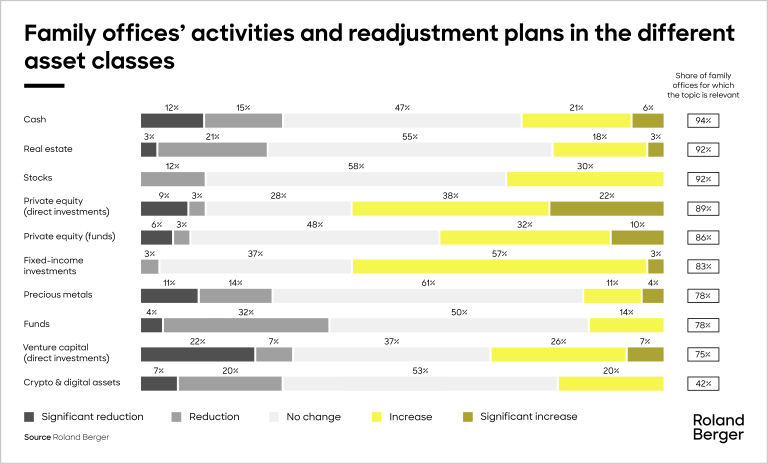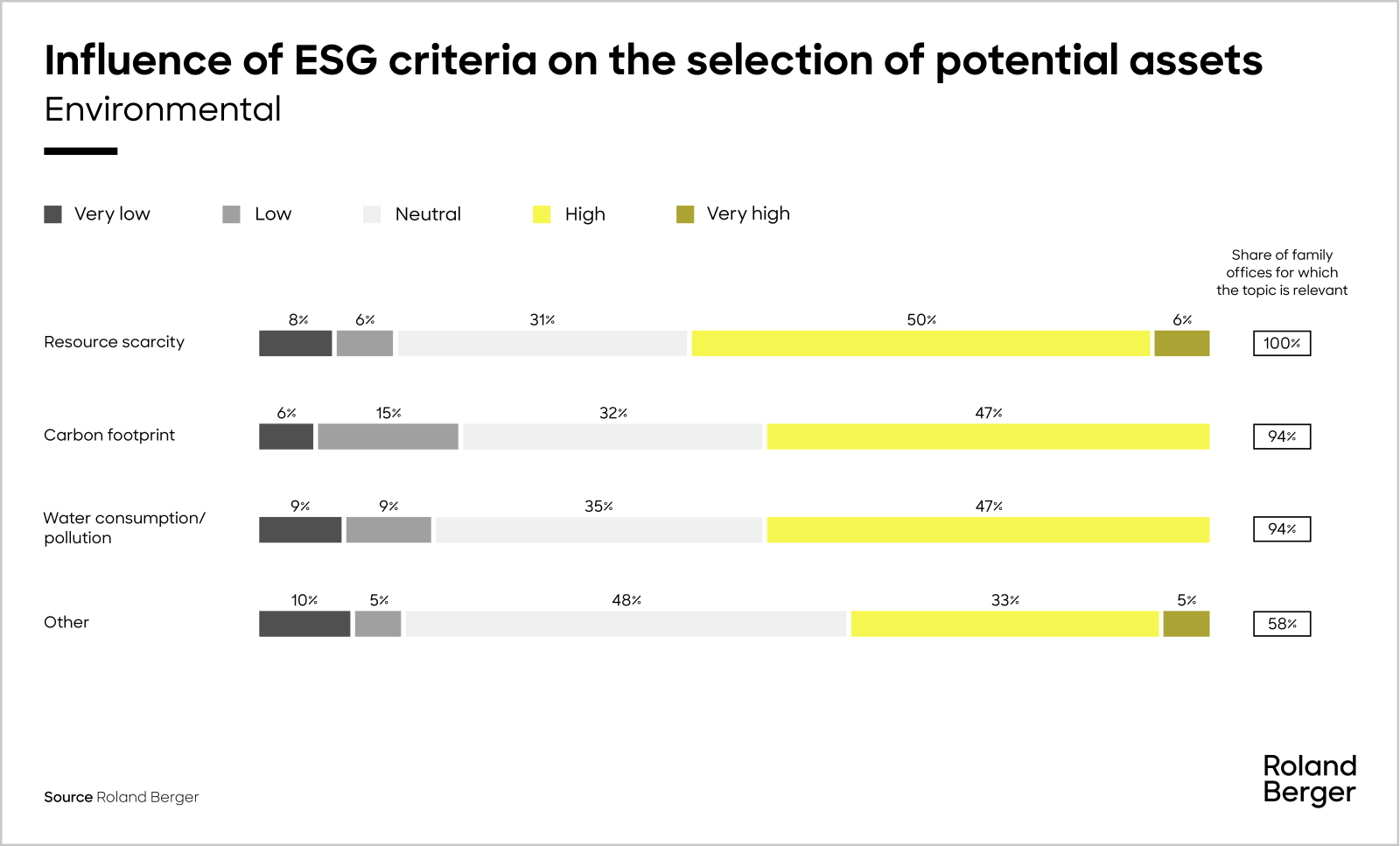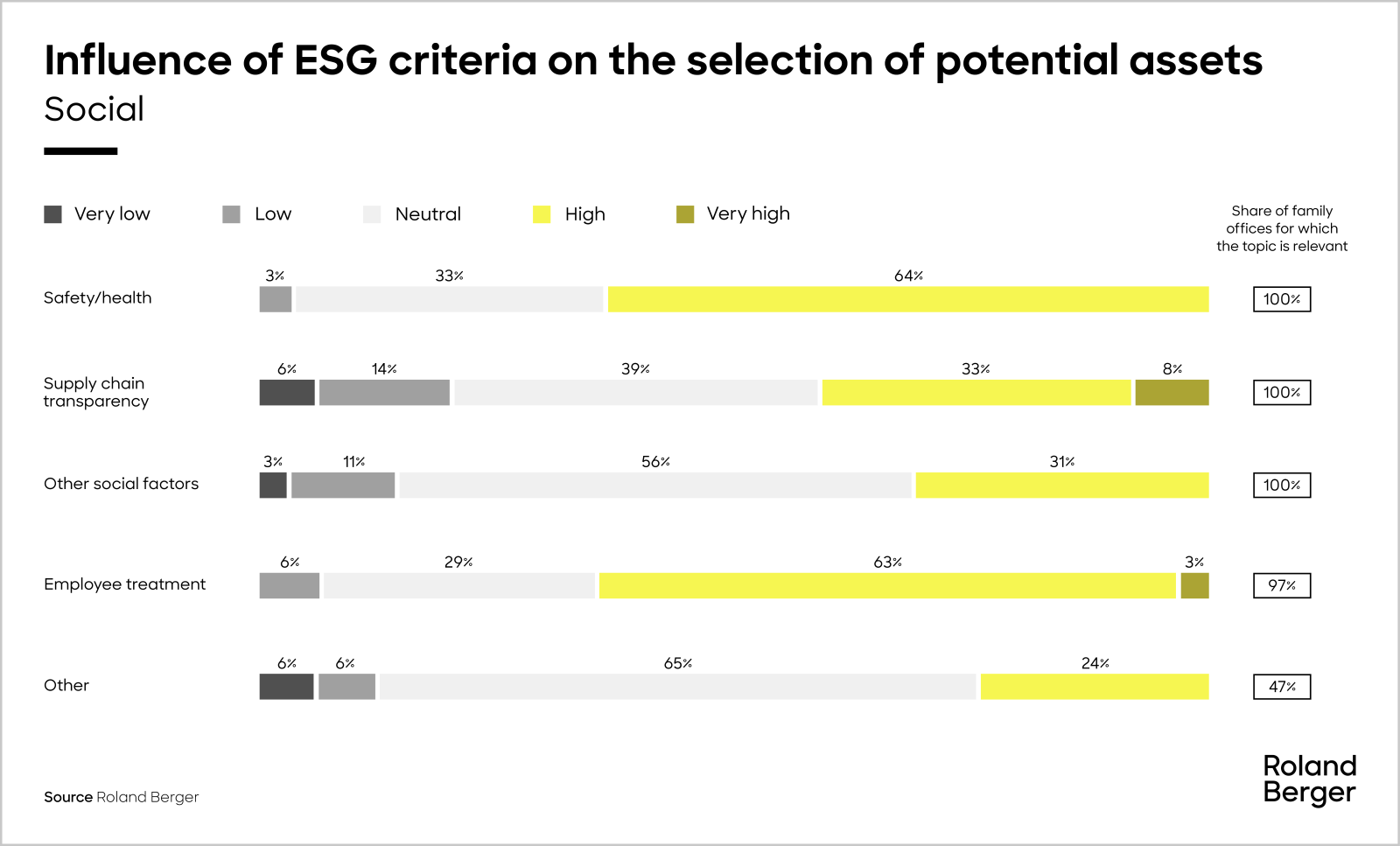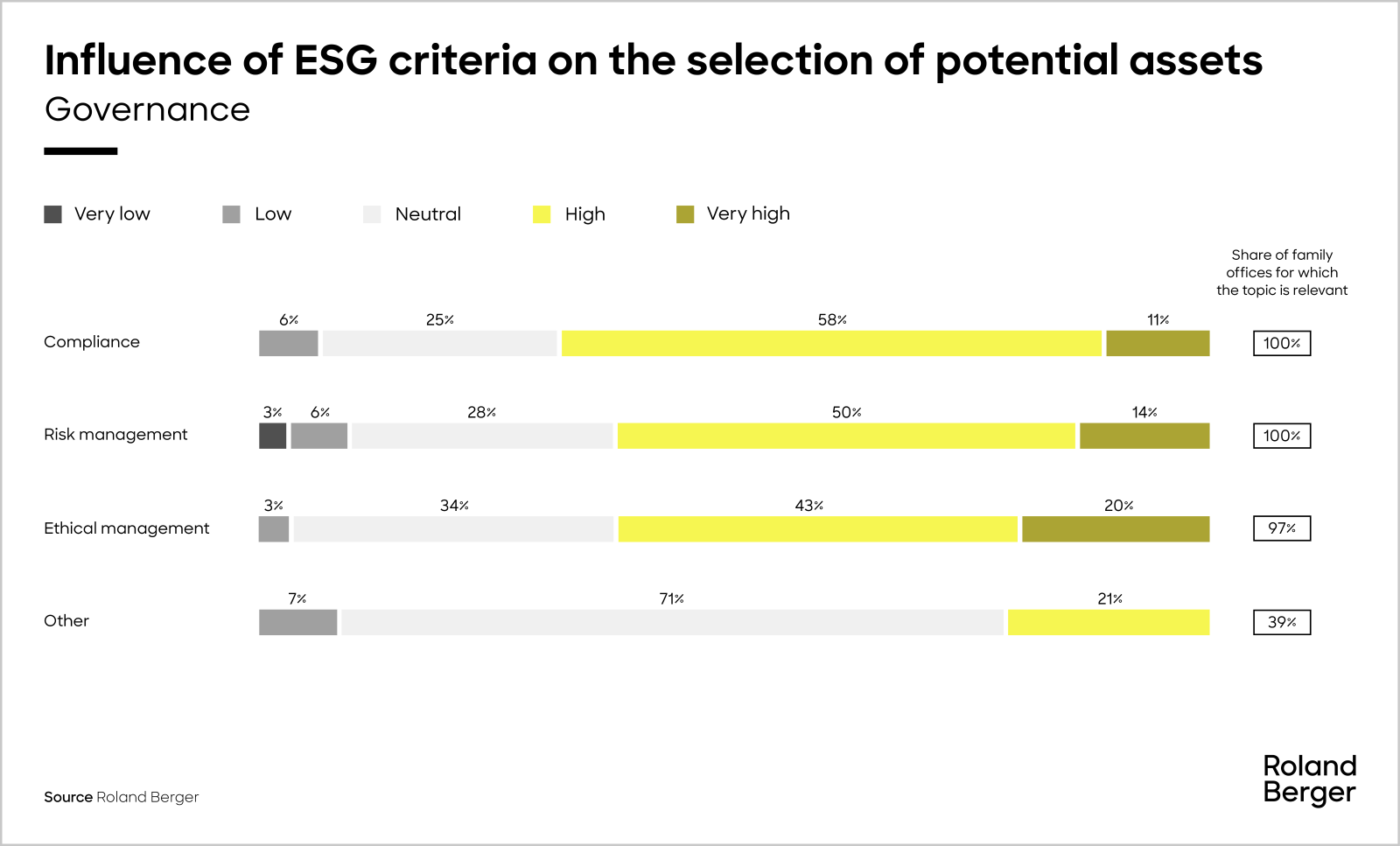Single family offices are changing their asset allocation through more direct investments. For this, they need professional (governance) structures.


Family offices in focus
By Justus Jandt
Current challenges, investment trends and the growing importance of ESG criteria
Family offices have been active players in the financial sector for some time, looking for innovative investment strategies to preserve family wealth. They have faced many new challenges in recent years: Covid-19, geopolitical upheaval, the energy crisis, a weakening global economy, inflation and higher interest rates are increasing the pressure to act. However, the current situation also offers many opportunities – if they are recognized in good time and implemented professionally.
In the latest Family Office Study, conducted by Roland Berger in collaboration with the Institute for Family Business and Mittelstand at WHU, family offices were surveyed on current trends. The results show a clear direction: almost all family offices want to realign their asset allocation and adapt it to the current situation.

"A key challenge is the professionalization of processes in a family office to successfully execute complex private equity transactions."
Rising interest rates, geopolitical turmoil and recession are key issues for family offices
Respondents currently see the greatest challenges in rising interest rates, geopolitical upheaval and a possible recession, while the energy and commodities crisis is becoming less relevant. This environment has caused plenty of recent volatility in capital markets and poses a particular challenge. In addition to higher project and financing costs, the increased uncertainty about future economic and political developments is also impacting investment decisions. Internally, cybersecurity, digitalization and the professionalization of the family office are the biggest challenges for over 90% of respondents.
Low interest rates in recent years have led to few adjustments in asset allocation for family offices. This is now changing as rates rise. Almost all family offices are planning to realign their asset allocation and adapt it to the current situation. At the top of the list are real estate and fixed-income investments as well as private equity in the form of direct investments or funds.
Private equity remains a popular asset class
89% of respondents are already directly invested in companies. For family offices, which generally have a better equity base, private equity investments will continue to offer opportunities for high returns. Following positive due diligence, nearly all survey participants regularly decide to make a purchase. Focus industries such as medicine & healthcare and IT & digital business models are gaining in importance. Most of the money flows into companies with an annual turnover of less than EUR 20 million. Only 16% of the acquired companies exceed an annual turnover of EUR 100 million.
ESG and impact investing on the rise
The importance of environmental, social and governance (ESG) criteria in the investment decisions of family offices continues to increase. For 56% of respondents, resource scarcity plays an important role when selecting their assets. Both carbon footprint and water consumption are considered by 47%. The health and safety of employees and their treatment are also of great importance when selecting investments.
Effective compliance (69%) and comprehensive risk management (64%) are essential for family offices to create clear structures and responsibilities as well as comply with increasing legal requirements. There is also a trend towards impact investments, which are either important or very important for around half of those surveyed.
More and more family offices want to measure the impact of their investments, either as a management tool or to improve their own impact performance and promote a sustainable investment strategy. However, despite existing standards for sustainability reporting, transparent measurement of sustainability goals is often difficult.
Seizing opportunities in volatile markets
Family offices have been in a permanent state of flux since their inception and have already had to overcome several crises. The next few years will remain challenging. Trends such as sustainability and impact-investing will continue to gain in importance. Greater professionalization and the digitalization of business processes are required to establish future-proof structures. PE investments also offer family offices the chance to continue their entrepreneurial activities and support associate companies with their experience. However, the implementation of increasingly complex transactions requires extensive internal know-how and the establishment of suitable internal structures.
If family offices remain flexible and adapt quickly to the new conditions, they will remain successful despite uncertain economic and geopolitical developments in volatile markets.
Register now to download the full "Family Office Study 2023" including the key findings from our survey together with the Institute for Family Business and Mittelstand at WHU.
Register now to download the study on "Family Offices 2023". You will also receive regular news and updates directly to your inbox.

_person_144.png)







